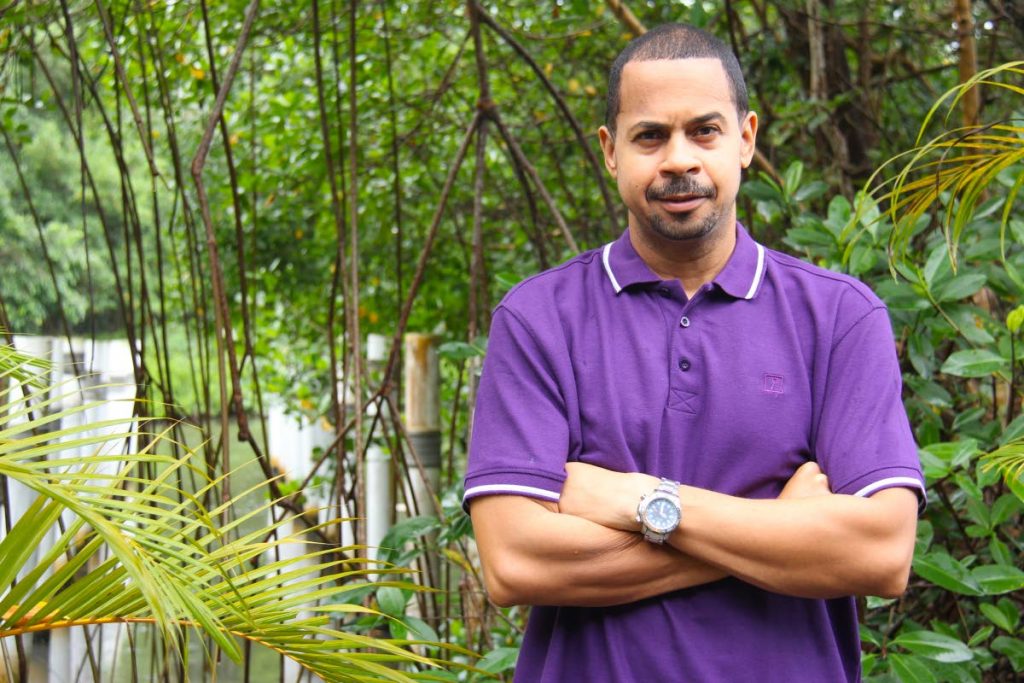The train at the end of the tunnel

I'VE BEEN looking on at the raging debate about the Columbus statue with enthusiastic detachment. Last week it was Black Lives Matter and George Floyd. As statues were being torn down in other countries, we started to look around to see what effigies we have about the place that we could lick down too. As Burning Spear sang, "Creesteefah Colo-o-o was ah dyam blasted lyah!"
While it's important to have rigorous debates about the legacy of Columbus, I wish the same passion was exhibited for the perilous state of the economy. Whether that monument to tyranny stands or falls, his history is past; our tragedy is unfolding.
Covid19 did far more than trigger a mass culling of jobs. Some experts believe the world is on the cusp of the first depression of our lifetimes. A depression, as distinct from a recession, is global, and its effects are more enduring. Aside from the economic costs, this pandemic has profoundly reshaped societies. It has forced us to rethink the way we humans do business, travel, feed ourselves, conduct international trade, pursue an education; you name it.
With a depression on the horizon, our already struggling economy can't escape the contagion. Even though it has been suggested covid19 is responsible for the current economic strain in TT, this isn't true. The lockdown merely exacerbated what has been several years of economic lethargy manifested in business closures, unemployment, anaemic oil production, weak pricing and the consequent evaporation of energy sector revenues. The coronavirus merely exploited these extant weaknesses.
So, I've been wondering why people aren't as passionate about the economic health of this country as they are about the Christopher Columbus statue. Getting timely, comprehensive data on the state of the economy is always a challenge, but the abundant anecdotal evidence, though, is deeply worrying.
The number of people vending at the side of the road seems to have almost doubled. It's heartbreaking to see people on the Aranguez main road, practically shoulder to shoulder, all selling the same wares. Many of these newly-minted vendors are likely people who lost already tenuous employment as the pandemic took hold.
You may have noticed the rise of the detergent sales industry. Citizens are grasping at any opportunity to earn a dollar, notwithstanding competition so fierce as to make the enterprise not worth the effort or investment.
As retail outlets opened across the country, the casualties of covid19 are becoming more apparent. At shopping centres big and small, many small businesses gave up the ghost. "For rent" signs fill windows where, previously, there were “Open” signs.
I was chatting with my official gyro supplier, getting all up in his “bidness,” asking him how he's been faring. He explained that after the lockdown he was only able to bring out two of his workers on truncated shifts. As it stands, he's barely making enough to keep the lights on, and there's no profit. People are back out, but their wallets are not.
An informal survey I've done has also revealed several other businesses that have returned at half (or less) strength with a small staff. In some instances, workers in these businesses have been told they will be paid half their salaries.
So this country is faced with unemployment and underemployment. These people, in turn, are less able to patronise other commercial operations, thereby closing the loop or the noose around the neck of small business.
For people cosy in public service jobs from which they can only be dislodged with dynamite or retirement, the gathering economic storm will eventually affect everyone. The same holds for those employed in more robust private sector companies.
The examples here admittedly reflect a casual assessment of the state of the economy. But living in a country where hard data and updated statistics are as rare as humility in a politician, you either become keenly observant or happily oblivious.
Perhaps the economy is too unwieldy a subject to pique the interest of people en masse. A statue is more manageable; more movable. Not surprisingly, the first report of the Roadmap to Recovery team stoked little interest. Why, boy? Don't we want to know where we're headed and how we're meant to get there?
We can't change what's coming, only ourselves. Earlier this column pointed to the fundamental ways covid19 has changed every facet of human existence. How can we begin to understand who we must become when we aren't even interested in the forces that will change who we are without our consent?


Comments
"The train at the end of the tunnel"